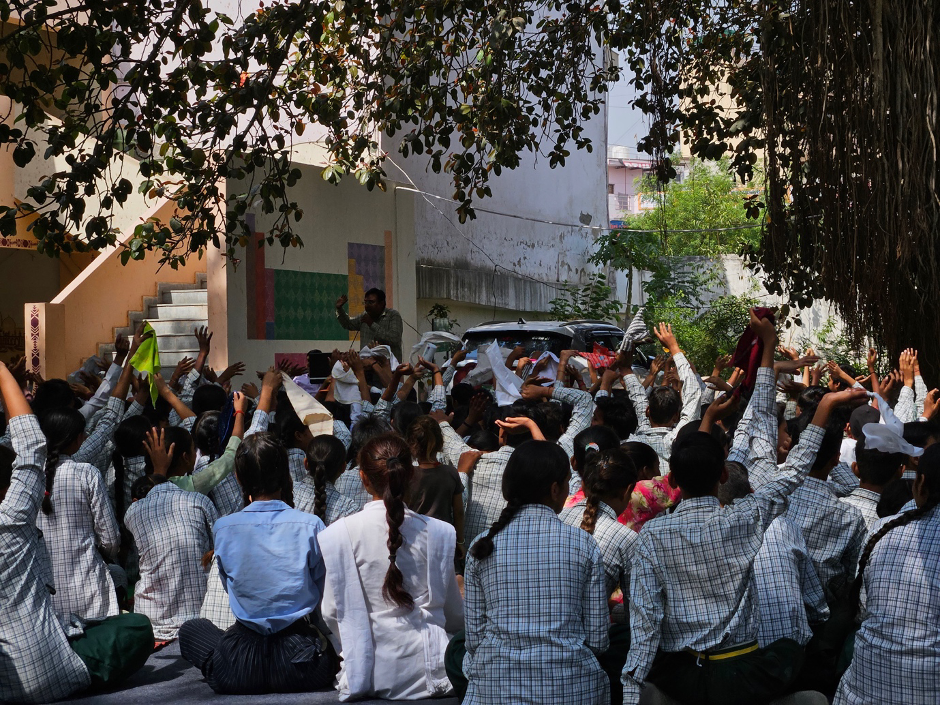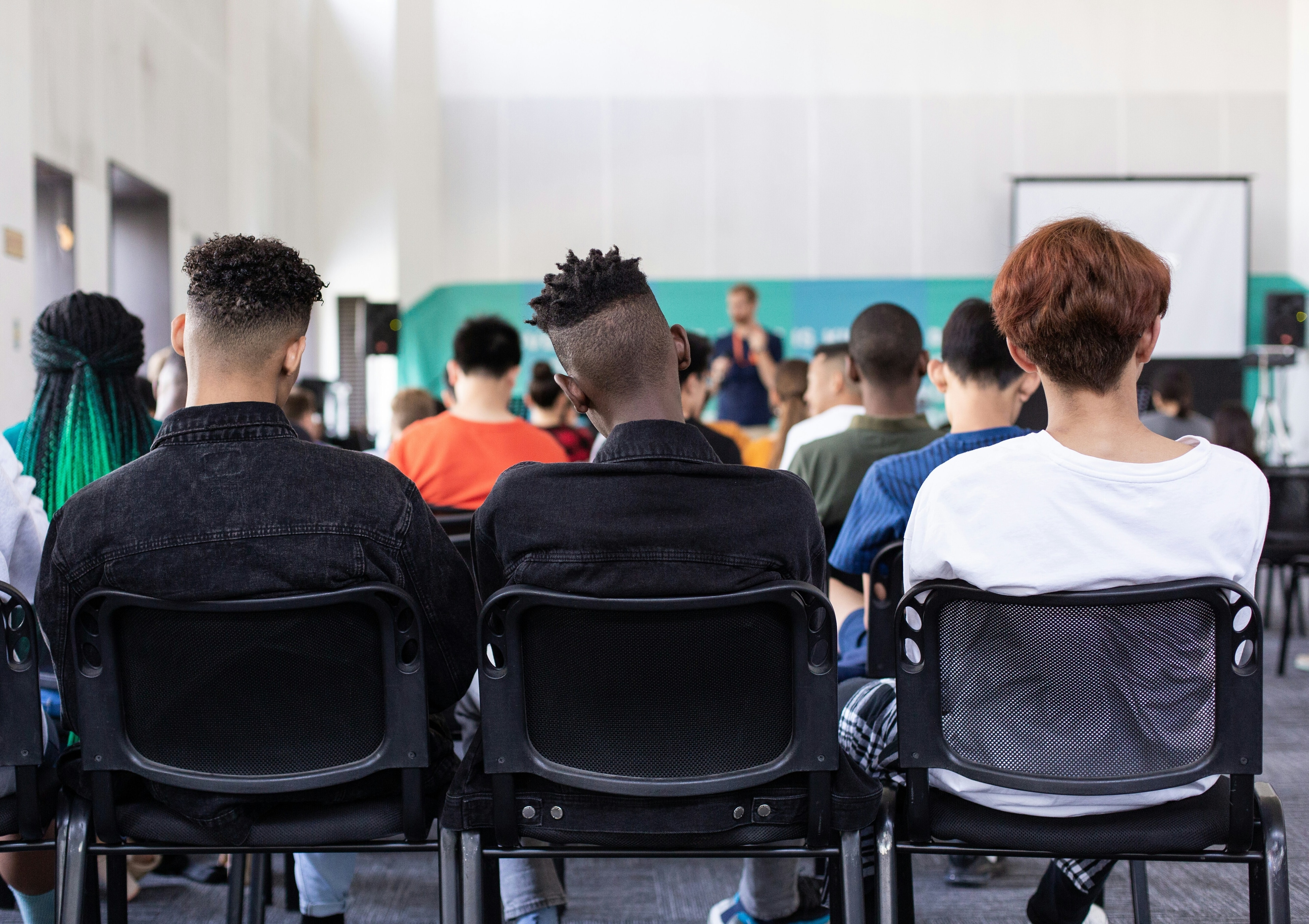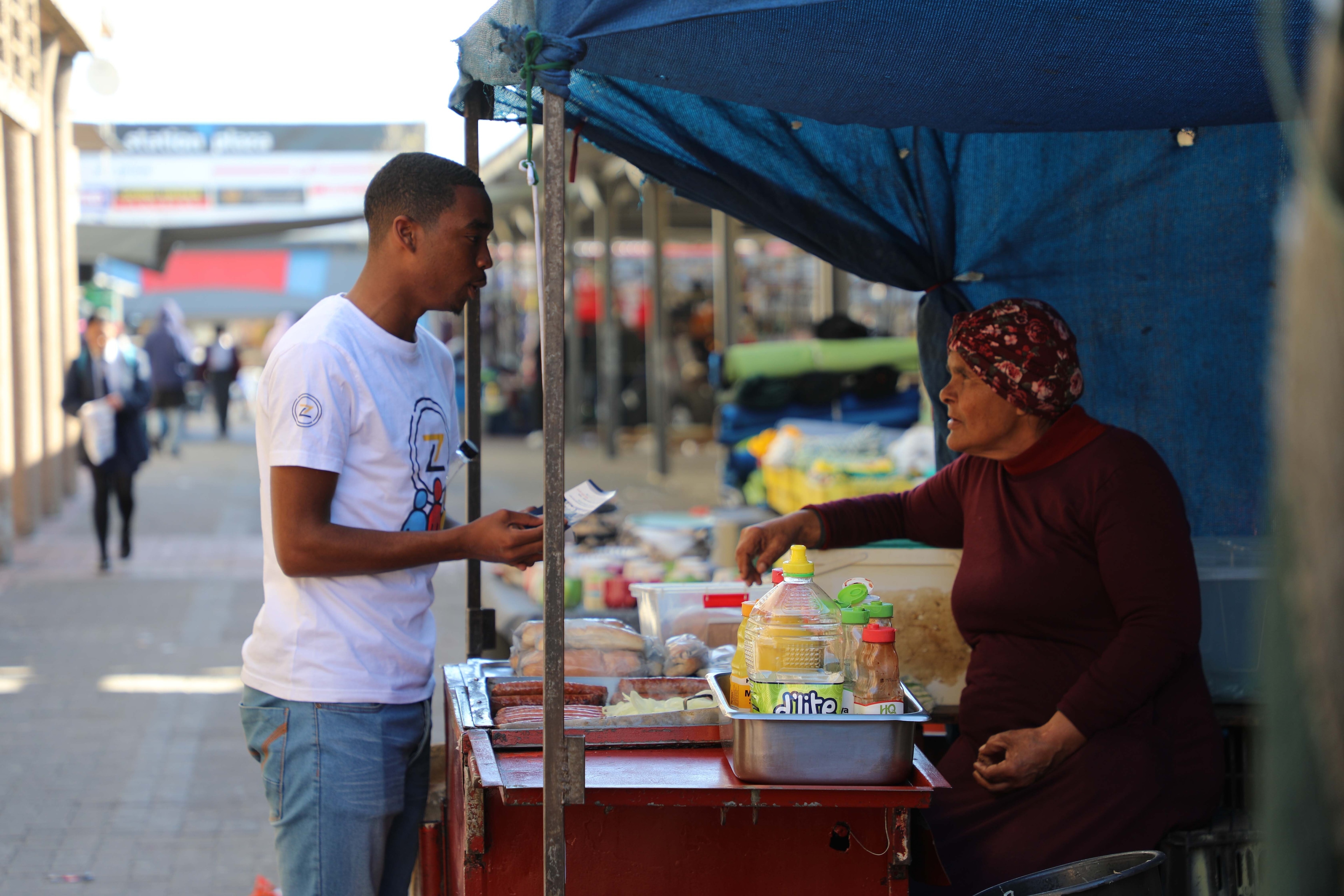Why the world needs the youth revolution more than ever

Young people are taking the lead in creating a more sustainable, inclusive future.
Wadia Ait Hamza
Director, Leadership Programs, The Academy, Mohamed bin Zayed University of Artificial IntelligenceYoung people coming together in joint action has served as a major engine of social transformation throughout human history. At key moments, younger generations have repeatedly acted to overthrow and dismantle systems of oppression, subordination and injustice.
Today, youth-led collective action is proving decisive in combating global challenges. From fighting for the environment, to protecting and expanding the rights of women and girls, to demanding economic justice, young people are at the forefront of change.
To ensure the aspirations of the next generation are met, the World Economic Forum founded the Global Shapers Community – a network of inspiring innovators, activists and entrepreneurs under the age of 30 who play a central role in creating lasting change in their communities and the world.
Here are the ways they’re standing up and taking action today.
What is a Global Shaper?
1. Standing up for equity and inclusion
Around the world, Shapers work to build inclusive communities, break stereotypes and advance gender equality. In the last twelve months, Shapers in 125 cities have developed grassroots solutions, including awareness campaigns, education initiatives and skill-building efforts to reduce barriers to women in the workplace, increase civic engagement among minority groups and advocate for the rights of refugees.
For example, Fatima Azzahra El Azzouzi, a Shaper in Casablanca Hub (Morocco) is leading a global initiative to provide mental-health peer counselling to those who need it most. In Amman Hub (Jordan), Shapers are running a video series called Nafsyeh to educate people in Arabic-speaking communities about mental health, a still taboo and often under-discussed topic nationally, said Shaper Ibrahem Abu Hijleh. To date, Shapers have reached 10,000 young people with mental health support in 6 languages.
"By training young people using evidence-based methods adapted to linguistic and cultural needs, Global Shapers have the potential to revolutionize how mental health support is delivered worldwide," El Azzouzi said.

In Mexico City (Mexico), Shapers are curating digital resources to provide migrants information about job opportunities, said Shaper Laura Reyna. In Los Angeles Hub (USA), Shapers are partnering with the local government to provide mentorship to refugees. Caracas Hub (Venezuela) is supporting nearly 10,000 refugees with access to healthcare, education and nutrition, said Shaper Juan Jose Pocaterra.
In addition, Ho Hub (Ghana) is running a Girls Mentoring Programme to empower young women to pursue careers in science, technology, engineering and math (STEM) fields, explained Yayra Adyofu. In Ahmedabad Hub (India), Shapers are providing sexual and reproductive health education to young women and girls, reaching more than 2,300 students to date.
2. Protecting the planet and nature
According to the latest Global Shapers Survey, climate change and the destruction of nature are the biggest global concerns for young people. In response, Shapers have implemented 160 environment-related projects this year. Projects are wide-ranging and included climate strikes, beach clean-ups, reforestation projects and advocacy campaigns like #VoiceforthePlanet.
Join the Voice for the Planet movement
For example, Erbil Hub (Iraq) has established plastic-bottle-collection initiatives at local schools and universities to create a culture of recycling, explained Basima Abdulrahman. Similarly, Gold Coast Hub (Australia) is coordinating a project called Good Karma to collect recyclables and invest returns into Circular Economy projects.
“By generating awareness and creating a vehicle where young people can contribute towards a more circular economy, we are helping to form better attitudes and behaviours for current and future generations,” said Shaper Rachel Hansen.
In other parts of the world, Panama Hub (Panama) is organizing fruit tree-planting drives to reforest nature where they live and improve child nutrition, Shaper Laura Diaz said. Similarly, in Lahore Hub (Pakistan), Shapers are leading a reforestation initiative in one of the most polluted cities in the world. They’ve planted more 15,000 trees to date – one of the easiest and most effective ways to fight climate change.
In Bhopal Hub (India), Shapers are partnering with local governments, housing societies and industrial associations on the Harvesting Heavens project to replenish groundwater through rooftop rainwater harvesting. This is just one way, Shapers are encouraging their leaders to take action on climate, explained Shaper Harshit Sharma.
In Doha Hub (Qatar), Shapers are organising the Earth Talk series, bring together policy-makers, business leaders and academics to discuss critical environmental issues, Shaper Neeshad Shafi explained. Similarly, Calgary Hub (Canada) is co-hosting national conversations to encourage young people to pressure elected officials to act.
“Young people want to see our political leaders, regardless of the party that is elected, work together to safeguard our planet,” said Shaper Robyn Seetal. “Protecting our planet should not be a partisan issue; it's a global crisis and anyone in leadership needs a plan of action to address it.”

3. Shaping the future of education and employment
Global youth face tough labour markets and job shortages in countries all over the world. Approximately 20% of youth in the average emerging market and developing economy are neither in work nor in school. In response, Shapers are implementing projects to provide more accessible forms of training, education and employment to those who need it most – reaching more than 30,000 young people this year alone.
“Given constant technological advances, the demands of the future of work require innovative thinking that is empathetic and empowers people as impactful economic agents locally and globally,” said Shaper Emmanuel Gamor from Accra Hub (Ghana), co-founder of Kanea – an education startup focused on upskilling young professionals.
Lagos Hub (Nigeria) offers workshops to equip youth with digital skills to empower them in today’s job market, including big-data analysis, training in hardware and software, and tips on thriving in a networked world, explained Adeyanju Folarin.

In Chicago Hub (USA), Shapers work with local initiatives to help young people achieve economic success and promote inclusive entrepreneurship, said Parvathi Santhosh-Kumar. In Athens Hub (Greece), Shapers lead the largest job creation platform for youth nationally – connecting 8,000 young people to paid internships in 300 companies so far.
“One-third of our lives is spent in a work environment that is being rapidly transformed by emerging technologies,” said Shaper Leticia Gasca from Buenos Aires Hub (Argentina). “As Global Shapers, we have the opportunity and the responsibility to influence the future of work.”
The World Economic Forum will host the Global Shapers Annual Summit, the Forum’s foremost gathering for young leaders to shape the future, 30 August to 1 September 2019 in Geneva, Switzerland.
Don't miss any update on this topic
Create a free account and access your personalized content collection with our latest publications and analyses.
License and Republishing
World Economic Forum articles may be republished in accordance with the Creative Commons Attribution-NonCommercial-NoDerivatives 4.0 International Public License, and in accordance with our Terms of Use.
The views expressed in this article are those of the author alone and not the World Economic Forum.
Stay up to date:
Youth Perspectives
Forum Stories newsletter
Bringing you weekly curated insights and analysis on the global issues that matter.
More on Youth PerspectivesSee all
Christie Burley and Inés Yábar
November 5, 2025







